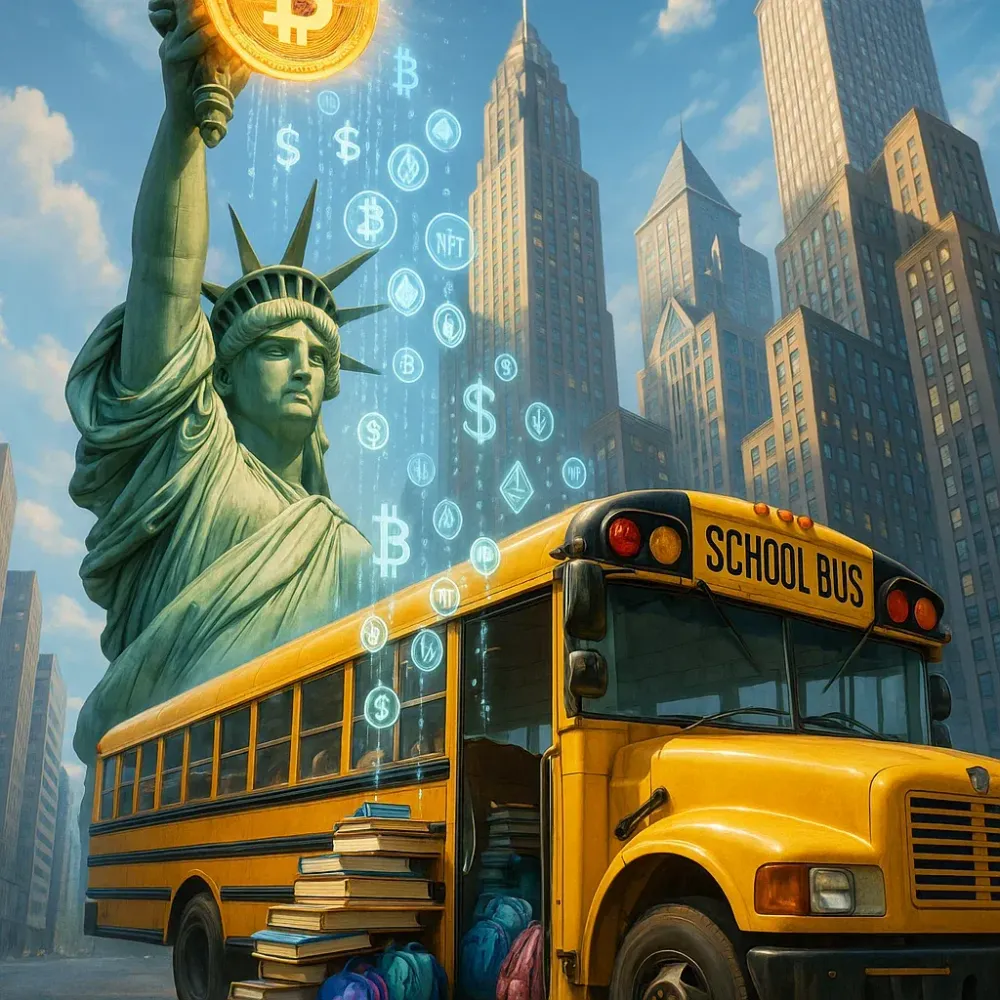New York Proposes 0.2% Crypto Sales Tax to Fund Schools — $158M Target
🗽 New York Wants Your Crypto: A 0.2% Tax Grab for Schools
From Wall Street to Web3 — lawmakers eye your trades to fund classrooms.
📊 Quick Take
- Bill: Assembly Bill 8966
- Tax: 0.2% on crypto & NFT transactions
- Target revenue: 158M annually
- Use of funds: Drug prevention in upstate schools
- Risk: Liquidity exodus à la BitLicense 2015
💸 Albany’s Big Idea
New York Assemblyman Phil Steck thinks crypto can bankroll public schools. His proposal: slap a 0.2% sales tax on every digital asset trade, from Bitcoin whales to NFT flippers.
Revenue goal? A clean 158 million a year. Mission? Funding drug-prevention programs across upstate New York.
Sounds noble. But crypto’s never been just about good intentions.
🚪 Exit Signs Flashing
New York already has some of the toughest crypto rules in America. Remember BitLicense 2015? That one law pushed major exchanges out of the state and drained local liquidity.
This tax could spark déjà vu:
- Exchanges may hike fees or pass costs to users.
- Traders may flee to offshore or out-of-state platforms.
- Liquidity may thin out, weakening New York’s relevance in price discovery.
📉 Market Voices
“This isn’t about 0.2%. It’s about precedent,” warns one policy analyst. A compliance officer adds: “We could see liquidity quietly bleed out of New York again.”
Translation: It’s not the cut, it’s the crack in the dam.
🌍 Why It Matters
If New York pulls this off, other states could follow. Crypto may face a patchwork of local taxes, slicing margins and reshaping U.S. market geography.
Will this become a sustainable funding stream for public programs — or another cautionary tale of overregulation choking innovation?
TL;DR
New York wants a 0.2% crypto tax to fund schools. Great for classrooms, risky for markets. Could trigger a repeat of BitLicense’s 2015 liquidity drain.

Recent News
All Time High • Live
Have questions or want to collaborate? Reach us at: [email protected]










